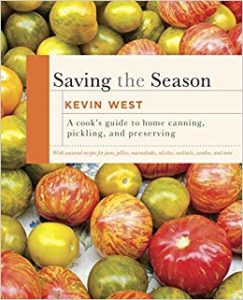 When the COVID-19 crisis finally ends, I propose that we retire the word “unprecedented,” like retiring a legendary athlete’s number. Sure, epidemics happened before, such as the one described in Norwood historian Patty Fanning’s Influenza and Inequality: One Town’s Tragic Response to the Great Epidemic of 1918, but not during the age of Zoom. I had never experienced such a prolonged and anxiety-ridden episode in my lifetime.
When the COVID-19 crisis finally ends, I propose that we retire the word “unprecedented,” like retiring a legendary athlete’s number. Sure, epidemics happened before, such as the one described in Norwood historian Patty Fanning’s Influenza and Inequality: One Town’s Tragic Response to the Great Epidemic of 1918, but not during the age of Zoom. I had never experienced such a prolonged and anxiety-ridden episode in my lifetime.
My memory blurs when recalling the library’s response; things changed day to day as we shut down many operations, enhanced others, and began to reopen as time went on. Our staff’s efforts and successes warrant documentation.
February, 2020:
Along with a few colleagues I attended the Public Library Association conference in Nashville, Tennessee. We sat shoulder to shoulder in packed conference rooms, hugged old friends from other libraries, and attended evening receptions with bars, buffets and dance floors. We enjoyed this last hurrah, unaware that we would not travel or attend in-person conferences for over a year.
March, 2020:
We began hearing about a dangerous virus, and several town employees caught the illness, going into quarantine early on. Advised by the Norwood Public Health Department, we began implementing COVID precautions, and then on March 10th Governor Baker announced a State of Emergency, followed by a mandatory closure of non-essential businesses. While many find the library “essential” in their lives, in this case the term referred to first responders, hospital workers, and those in similar sectors. We expected the library building to close for a week, starting March 15th. On that day we launched the reference chat feature on our website.
We scrambled, making decisions on the fly. Staff, ordered to work from home, secured the necessary technology and remote access to behind-the-scenes library software. A few town officials toured the library with me and our former Director, Charlotte, measuring spaces for plexiglass and discussing our plans. We invented a curbside pick-up operation, after deciding against a plan to deliver materials to patrons a la Door Dash. Folks could call from the parking lot and staff would check out their materials and deposit them in the trunks of their vehicles. Only a skeleton crew entered the building.
At home, librarians heavily promoted our e-resources, including e-books, audiobooks and streaming video, and we increased monthly limits for these applications. Citizens learned via our website, YouTube, email, chat, and phone how to log into these tools and take advantage of them. Employees downloaded Zoom and participated in frequent virtual meetings. Programming like storytimes moved to Facebook Live.
Necessity breeds innovation. March felt like it lasted forever.
April, 2020:
The governor extended closures through the entire month of April with all staff at home, forcing us to suspend the curbside operation. Who ever imagined the quarantine lasting this long? From back porches and kitchen tables the MML crew engaged in professional development from home, as the Minuteman Library Network, the Mass Board of Library Commissioners, the Massachusetts Library System, and others offered online trainings, workshops, lectures and forums. Zoom staff meetings continued at least once a week as everyone learned to mute, screen share, and wrangle children and pets. After hours we discovered virtual game nights and happy hours.
May, 2020:
To our surprise the quarantine extended through late May. After Memorial Day, 25% of employees could enter the building again, and we resumed contactless pickup, this time adding an appointment booking system. Staff members’ daily tasks totally changed. Our Director and management team completed an 18 page Phased Reopening Plan, submitted to Town Hall and the Board of Library Trustees.
Summer, 2020:
Worldwide, we struggled with mental health, physical health for those who contracted the coronavirus, and far too much mourning. The Children’s Department launched an innovative Pop-Up Library endeavor, traveling to Norwood schools weekly with bins of books and a canopy tent. Administration urged us to use vacation time (for “staycations”), but I insisted on saving my time off, certain I could embark on an international trip in the fall or winter.
On August 3rd the Library reopened for limited in-person browsing. We continued curbside service in the afternoons, while opening to patrons during morning hours. An entranceway “greeter” welcomed visitors, explaining our rules and policies, and offering hand sanitizer, masks and gloves. At first staff felt like bank tellers behind plexiglass, but everyone got used to it. We provided limited notary and passport appointments, printing, copying and faxing, and brief computer use. Patrons could only stay for a half hour, and we removed chairs, newspapers and magazines to discourage lingering.
Fall, 2020:
The “new normal” continued: quarantining materials upon their return and waiving overdue fines. Usage of our e-resources skyrocketed and I worried about the impact on the budget. Then COVID hit close to home when we had a scare in the library. A few employees had to quarantine (on very short notice), but fortunately all returned safe and healthy.
Winter, 2020-2021:
More of the same, and then the library shut down again after Christmas, anticipating a surge in coronavirus cases.
Spring, 2021:
Appropriately, spring feels like rebirth and renewal. I daresay we’ve turned a corner after this unprecedented year. We loosened some restrictions, extending visit time to 90 minutes and increasing our capacity limit. The vaccine rollout began, and as of May 5th we anticipate that all or most library staff will be considered fully vaccinated.
Before long, evening hours and in-person programming will resume, and we cannot wait to see you. Publishers will release many more books about the pandemic, in addition to those already available, including The Plague Year: America in the Time of COVID, COVID-19: The Pandemic That Never Should Have Happened, and the graphic novel, COVID Chronicles. Our new normal will include a continuation and perhaps expansion of Pop-Up libraries, and a hybrid in-person and virtual model for many programs and book clubs. We made it through a difficult year, and hopefully will never again experience another one like it.
Lydia Sampson is the Assistant Director at the Morrill Memorial Library in Norwood, MA. Look for her article in the April 15, 2021 issue of the Transcript and Bulletin.




